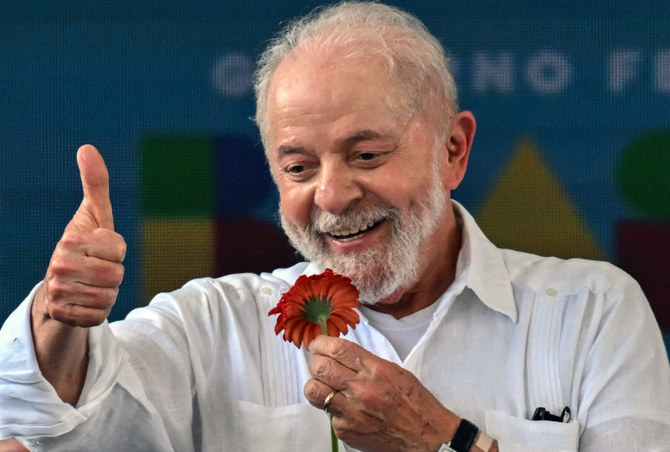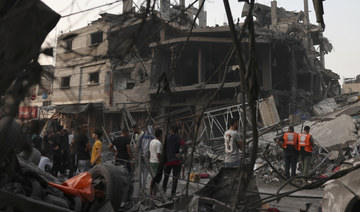RIO DE JANEIRO: In the year since Brazil’s President Luiz Inacio Lula da Silva returned to office, he has overseen a reduction in Amazon deforestation and some wins on the economic front.
However, new environmental and fiscal challenges are looming for the 78-year-old leader of Latin America’s biggest economy.
Here are some things you need to know about Lula’s first year back in power:
• The leftist veteran Lula narrowly won the presidency from his far-right predecessor Jair Bolsonaro in a bitter election that deeply divided Brazil, leaving him no honeymoon period at the start of his third term in office.
A week after he was sworn in, thousands of Bolsonaro supporters invaded government buildings in the capital in January 8 riots.
“Lula has to face more challenges than during previous mandates. He had no grace period and faced a hostile parliament” dominated by the right, said Andre Rosa, a political scientist at the University of Brasilia.
Nevertheless, he managed to push through significant social aid programs and the economy has been doing better than expected.
“We are coming to the end of the year in a very good situation, I would say exceptional even, when we know the state in which we found the country,” Lula said after his final cabinet meeting for 2023.
• Brazil’s inflation has continued to fall, and Lula — after months of standoff with the Central Bank — managed to obtain four consecutive interest rate cuts.
The government estimates growth of three percent in 2023, after the economy performed better than expected in first three quarters, and unemployment figures are at their lowest since 2015.
The end of the year was marked by parliament adopting a vast reform of the tax system that the business community has demanded for over three decades.
The reform was welcomed by the S&P Global ratings agency which upgraded Brazil from BB- to BB, following fellow credit rating agency Fitch which did so in July.
However, some economists warn the government could struggle to balance public finances in 2024, when growth is expected to slow.
• One of Brazil’s most high-profile challenges has been the destruction of the Amazon, and deforestation halved between January and November compared to the same period in 2022.
Suely Araujo, a senior specialist of Brazil’s Climate Observatory, said that one of the factors was “increased controls” by IBAMA, the government’s main environmental agency which suffered severe budget and staff cuts under Bolsonaro.
The government also approved eight new indigenous reserves, considered by scientists to be essential defenses against deforestation.
But the good news on the rainforest — whose carbon-absorbing trees are key to the climate race — was offset by record-high deforestation for November in the Cerrado savanna, a biodiverse region below the Amazon that has been hit by a recent surge in clear-cutting, mainly for farming.
Lula’s government has also faced criticism for oil exploration projects near the mouth of the Amazon, and its announcement in the middle of global climate talks that it planned to join OPEC+, an expansion of the Organization of the Petroleum Exporting Countries (OPEC).
“Being a leader on climate and joining OPEC+ is incompatible,” said Araujo.
• Lula paid visits to the United States, China, attended a BRICS summit in South Africa and a G7 meeting in Japan, along with the COP28 climate talks in Dubai, to show Brazil was back on the international scene after ties deteriorated under Bolsonaro.
While Rosa, the political scientist said foreign relations have improved, Lula has also caused consternation with his stance on the conflict in Ukraine, where he says both Kyiv and Moscow are equally responsible for the war.
Lula has also accused Israel of committing the “equivalent of terrorism” in Gaza by killing innocent women and children in its war on Hamas.
In 2024, experts expect him to focus more on internal politics and rising crime ahead of municipal elections in October.






















